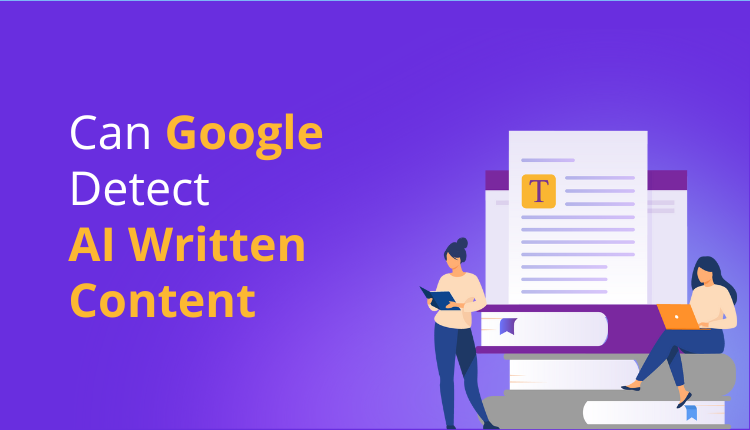As artificial intelligence continues to grow more advanced in producing text that is similar to human writing, a question arises for content developers, marketers, and website operators: Can Google identify AI-written content?
This query has fueled innumerable discussions in the world of digital marketing, with questions regarding search rankings, penalties, and the direction of content development. A solution that is picking up steam is Trinka’s free AI content detector, enabling creators to navigate these intricacies with confidence.
Understanding Google’s Position on AI Content
Google has left its stance somewhat definitive by way of formal statements and updates in documentation. The search giant does not automatically punish AI-generated content merely because artificial intelligence generated it. Rather, Google’s interest continues to be on content quality, relevance, and user value principles that have informed its algorithms for years.
Nonetheless, this does not imply that all AI-generated content receives the same treatment. Google’s advanced algorithms evaluate content based on its Experience, Expertise, Authoritativeness, and Trustworthiness (E-E-A-T). Content that reads shallow, duplicated, or manipulative, be it human or AI-generated, may be demoted in search rankings. The determining difference isn’t the tool used to write the content but the quality and intent behind the content.
The Technology Behind AI Detection
Although Google has not fully outlined its detection mechanisms, AI-generated text-detection technology does exist and is still in development. Different detection mechanisms study patterns of writing, such as sentence composition, word usage patterns, predictability of word selection, and other subtle linguistic features that AI models create.
These detection tools employ machine learning models that have been trained on massive amounts of human-generated and AI-generated content. They scan for characteristic indicators such as unnaturally regular sentence lengths, repetitive patterns in wording, absence of personal stories or real-world expertise, and a lack of authentic writing blemishes that humans would always show.
Why Content Creators Need AI Detection Tools
For content creators and businesses investing in content marketing, uncertainty about whether their content appears AI-generated can be problematic. Even if the content was partially or fully written by humans, certain writing patterns might trigger detection systems. Conversely, AI-assisted content that’s been properly refined might pass as entirely human-written.
This is where AI content detection tools prove to be invaluable. They give creators an idea of how their content may be interpreted by detection algorithms, enabling them to edit and refine it accordingly before publishing. Knowing your content’s AI signature ensures that the content is up to par in terms of quality and conformity to search engine optimization best practices.
Trinka.ai’s AI Content Detector: A Complete Solution
Trinka.ai has created an advanced AI content detector that is meant to assist creators to understand and enhance their content. The platform scans text to assess the probability of whether it was written by an artificial intelligence tool and provides rich insights beyond simple yes-or-no feedback.
The detector analyzes content at various levels, checking linguistic patterns, structural homogeneity, and other indicators that could suggest AI creation. What distinguishes this solution is its emphasis on actionable recommendations over identification alone. Users get comprehensive feedback informing them which areas of their content could be seen as artificially created and how to improve their work.
For scholarship authors, researchers, and experts who care about preserving authenticity in their work, the detector from Trinka.ai provides reassurance. It assists with making certain even when AI aids are employed for support, the end result has the touch of human experience and originality that readers and search engines appreciate.
The Balance Between AI Assistance and Authentic Content
The nature of contemporary content creation is that most writers are leveraging AI tools for a range of applications, anything from generating ideas to breaking up the writing block to enhancing sentence structure. Such human-AI collaboration is not in itself negative, but it must be carefully controlled so that the end product is genuine and worthwhile.
With an AI content detector in place prior to publishing, creators can find the right balance. You can use AI tools for their strengths while maintaining your content to hold actual expertise, special viewpoints, and the real voice that matters to readers. The intent is not to eliminate AI help altogether but to apply it thoughtfully in a manner that supplements rather than substitutes human wisdom.
Conclusion
Can Google find out whether content was written using AI? The answer is nuanced: although detection technology does exist and is improving, Google’s core interest is in content quality, not the method used to create it. But that doesn’t mean creators should never consider detection as an issue.
With trusted tools such as Trinka’s AI content detector, creators can safely navigate this terrain. Knowing how your content may be received and making educated adjustments allows you to tap into AI support while keeping your work the authentic, knowledgeable, and valuable that search engines and readers love.
The future of content creation is not in resisting AI tools but in being smart and ethical in their usage. If creators are savvy about their strategy and equipped with proper tools, they can create quality, genuine content that satisfies their audience and ranks well on the search engines, no matter what technologies enabled them to do it.

